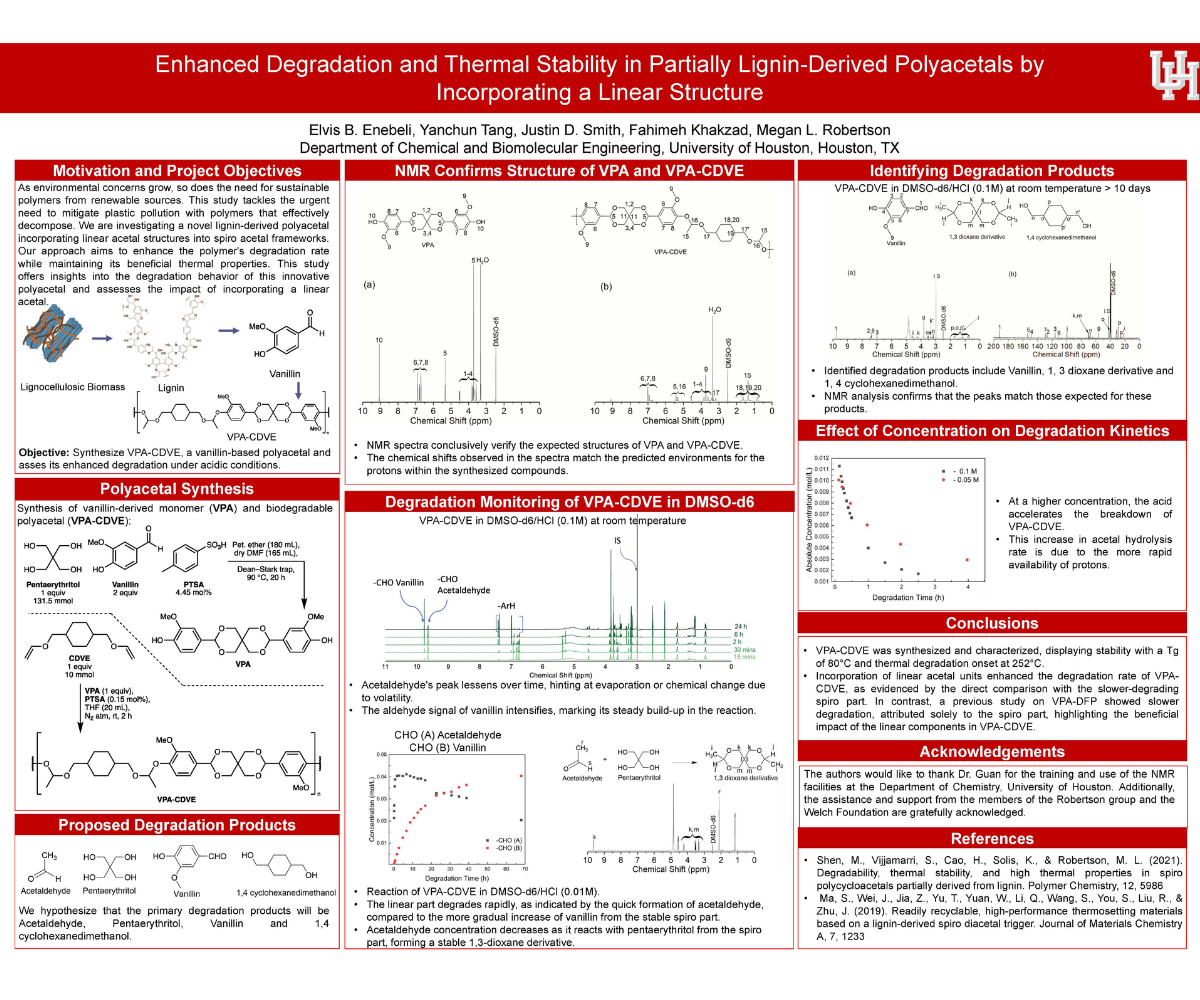
The development of biodegradable polymers derived from renewable resources has been motivated by the environmental impact of plastic waste. The objective of our research is to improve
the degradation rate of spiro-polyacetals by integrating linear acetal units into their structure while preserving their desirable thermomechanical properties. The polymer, VPA-CDVE, was produced by reacting vanillin-based spiro-acetal monomer (VPA) with cyclohexanedimethanol vinyl ether (CDVE). The polyacetal that resulted was characterized using NMR spectroscopy, which
confirmed its high purity by combining both spiro and linear acetal units.
Thermal analysis revealed a glass transition temperature (Tg) of 80°C and an onset thermal
degradation temperature of 252°C, indicating its stability under moderate thermal conditions. The
degradation behavior of VPA-CDVE was meticulously investigated in a variety of solvent environments under acidic conditions. The formation of degradation products and the
disappearance of acetal groups over time were monitored using in situ NMR. The results indicated that the linear acetal units facilitated rapid hydrolysis, resulting in the polymer's breaking down into small molecules and oligomers at a much faster rate than the spiro acetal units, which degraded
at a slower pace. The primary degradation products identified in the study were vanillin, acetaldehyde, and 1,4-cyclohexanedimethanol.
The degradation kinetics were significantly influenced by the solvent environment. Acetone-d6 facilitated rapid degradation, whereas D2O induced a slower reaction. These results indicate that VPA-CDVE is a promising material for applications that necessitate controlled degradation and
stability, with the potential to advance environmental sustainability through customized polymer
design.
This research contributes to the ongoing endeavor to identify polymer structures that are suitable for environmentally sustainable applications, while also retaining desirable properties
such as high thermal tolerance and mechanical strength, thereby enabling rapid degradability.